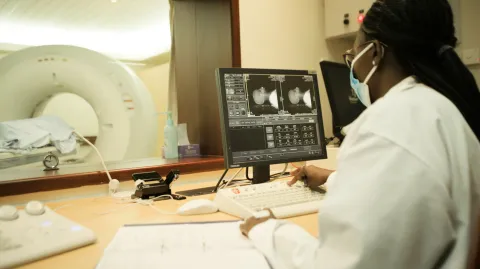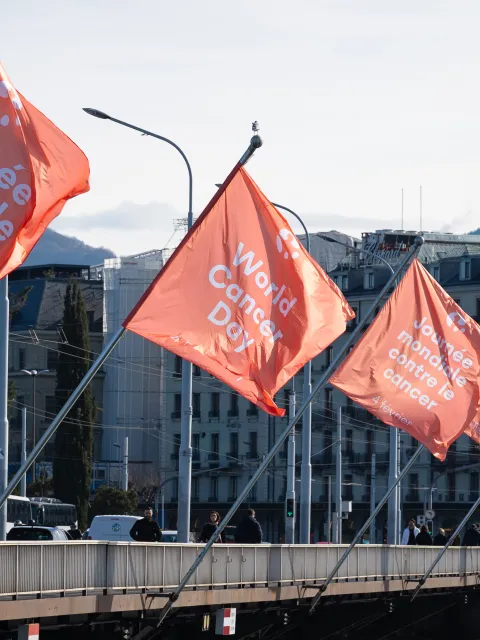Innovations aimed at closing the cancer care gap in low-income settings
As the cancer community prepares for the second year of World Cancer Day’s Close the care gap campaign, JCO Global Oncology showcases actions and advances in cancer care in low-income settings to improve equity.

World Cancer Day is three months away and UICC is kicking off the second year of the “Close the care gap” campaign on addressing inequity in health and overcoming barriers to accessing cancer services.
Despite considerable advances in cancer prevention, diagnosis and treatment, many services remain unavailable to people around the world who need them. Survival rates for similar cancers therefore vary – sometimes significantly – based on where people live, their gender and sexual orientation, their socioeconomic situation, their age, and other factors.
While the first year of the campaign focused on raising awareness about the equity gap, the second year is about taking the lessons learned over the past few years to improve health care delivery, as well as about highlighting the innovations and advances that are taking place to close the gap and celebrating real-world progress.
In this context, UICC staff have contributed to and guest edited a series of articles published in JCO Global Oncology on the theme “Driving Innovation to Advance Cancer Care Equity”. These articles highlight the remarkable advances that are being made in cancer prevention, early detection, diagnosis, treatment and patient-centred care – and the need for health authorities to manage costs and adopt nationally relevant and cost-efficient technology, policies and practices.
“With this special series we wanted to underline the importance of documenting innovations in cancer control which allow researchers to share their experiences for others to learn from to help close the equity gap in cancer care.”
– Dr Tezer Kutluk, Associate Editor of JCO Global Oncology, UICC Past President and Chair of the Department of Pediatric Oncology at Hacettepe University Ankara-Turkey
"Innovation to Advance Cancer Control Equitably", co-authored by Tezer Kutluk, Associate Editor of JCO Global Oncology, UICC Past President and Chair of the Department of Pediatric Oncology at Hacettepe University Ankara-Turkey, Sonali Johnson, UICC Head of Knowledge and Advocacy and Zuzanna Tittenbrun, UICC Global Resources Manager addresses the need to integrate innovation as an integral part of health system strengthening. This means developing creative ways of providing care as well as new capacities in technology, medicines and diagnostics, including addressing leadership, institutions, system design, social innovation and partnerships.
"Driving Equitable Access to Cancer Services Through the Engagement of People Living With Cancer: Regional Perspectives", co-authored by Mélanie Samson, Senior Manager, Regionalisation at UICC, and patient groups leaders builds on the experience of participants in UICC’s capacity building programme for cancer patient organisations in the Asia-Pacific and Eastern Mediterranean regions. The commentary explores how the participation of patients and their representatives is essential to the design and implementation of effective cancer policies and services and calls for further research on institutionalising this engagement in LMICs from a right to health perspective.
“Our commitment to equity flows through all of our work, including at our events such as World Cancer Day, the World Cancer Leaders’ Summit, where we launched the call for papers for this series, and UICC advocacy and knowledge sharing programmes . This series brings prevalent equity issues and real-world solutions and we hope that these will spark discussions in different settings around implementation and designing other innovative solutions to promote greater equity in access to cancer care.”
– Dr Sonali Johson, Head of Knowledge and Advocacy, UICC
Other articles look at how advanced molecular diagnostics can be applied in low-income settings to close the pathology gap; how genomic innovations in paediatric brain tumours can improve outcomes in low- and middle-income countries; a counselling app to reduce the psychosocial impact of testing; multisite and multidisciplinary collaborations and partnerships to improve access to care and strengthen health systems.
Last update
Wednesday 16 November 2022
